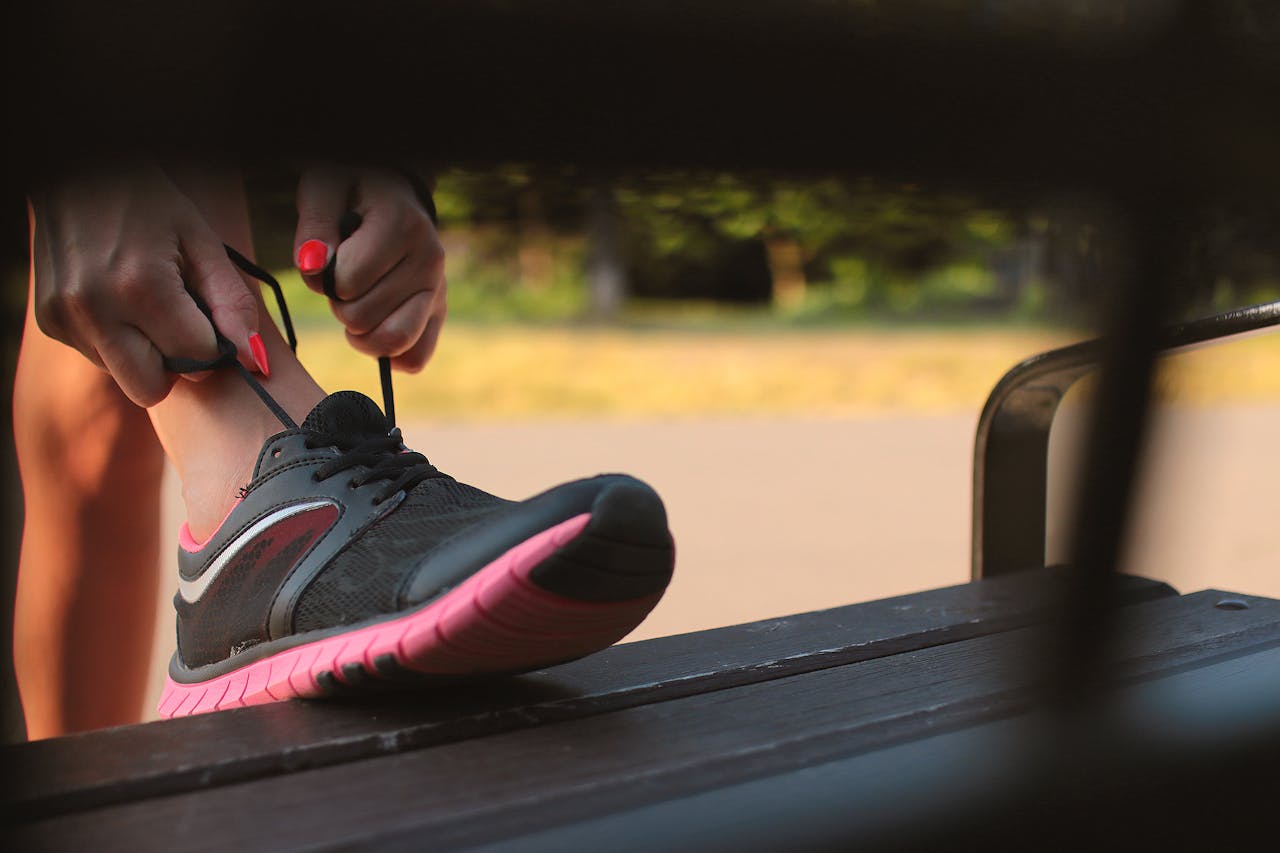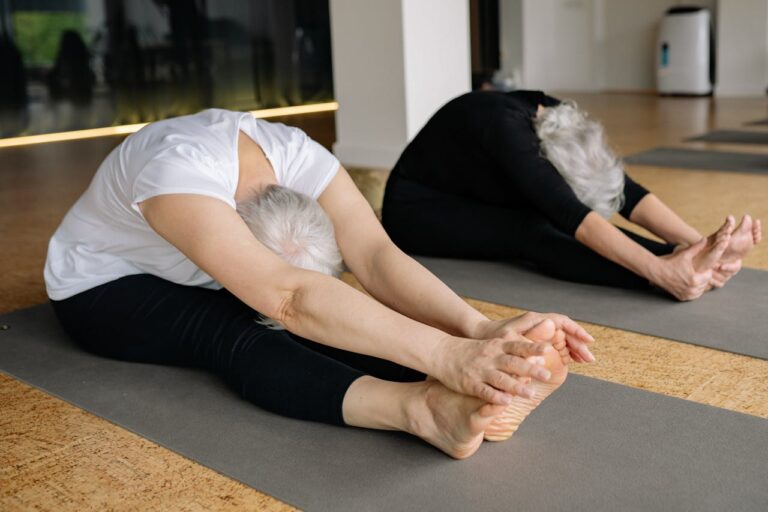Write Us: hello@ali5.org
How to Get Back on Track After a Health Setback or Lazy Streak
Struggling to restart your fitness or wellness journey? Learn simple, realistic ways to bounce back after a health setback or lazy phase without guilt.

We’ve all been there: life gets busy, we lose interest, and before we know it, we’re back to our old ways. You may have had to slow down because you missed a few weeks of exercise, ate takeout dinners, stayed up late, or had a health issue. It could be hard to get back on track, like standing at the bottom of a mountain you used to climb easily.
What is the good news? You can come back better, stronger, and more balanced than you were before. If you’ve been sick, hurt, or just “lazy,” here’s how to get back on track, get your body moving again, and get back in touch with your goals.
1. Start with kindness, not criticism
The first step to getting back on track is to forgive yourself, which is often the hardest part. You can get stuck in regret by saying things such as, “I wasted so much time” or “I’ve ruined all my progress.” But feeling guilty doesn’t help you heal or get you going; it just makes you more weary. Instead, be kind to yourself.
Remember that everyone has their own problems. There are instances when people, even athletes, CEOs, and health influencers, aren’t as consistent. What creates growth is not being perfect, but sticking with it. Take a deep breath and say to yourself, “I’m not starting over; I’m starting again.”
2. Think about what went wrong, but don’t dwell on it too much.
Before you go immediately into diets and exercise plans, take a moment to ponder.
Take a look at this:
- What caused you to lag or become lazy?
- Was it physical fatigue, emotional exhaustion, a deficiency of structure, or mere ennui?
- What was challenging about staying on track before?
If you were sick or pained, it’s plain why: your body needed to rest. But if you lost your motivation for no clear reason, you should strive to figure out what happened. You may have been trying to do too much too quickly. Your daily life might not have been fun. If you know the “why,” you can prevent going through the same scenario again. It also teaches you how to construct better this time.
3. Take it easy at the start; don’t go all out on the first day.
After a trip, some people make the mistake of trying to get back to their normal level of intensity right away.
- If you used to work out five days a week or eat very clean, don’t expect to get back to normal right away. Instead, think of this as a gradual restoration.
- Do something small to start, like a 15-minute walk or some light stretching.
- Focus more on being consistent than on being perfect.
- Begin with one small habit at a time.
- A “slow and steady” return is safer and lasts longer than a rapid one.
Doing something small every day is better than doing a lot once and then stopping.
4. Make a new timetable, but be ready to adjust it.
Structure keeps you stable. You could feel that your days are worthless when you don’t know where you are. You might wake up late, skip breakfast, look at your phone, and wonder where the time went. Putting a loose structure back together will help you get back on track. But don’t make it too hard; it needs to be able to change to stay real.
Try this:
- Drink some water, stretch, and make one easy objective for the day in the morning.
- Take a little walk or break at lunchtime to keep your energy up.
- At night, unwind early, keep away from screens before bed, and write down one thing you did well.
This generates a rhythm that helps you move forward and gives you time to take care of yourself.
5. Don’t limit your nourishment, but do pay attention to it.
It’s common to want to “make up for it” by going on strict diets after being sick or tired. But your body needs food, not punishment.
Instead of taking things away, focus on adding the good things:
- Fresh fruits and vegetables are full of vitamins and antioxidants.
- Lean protein helps you get better and stronger.
- Whole grains provide you with energy all the time.
- Plenty of water to stay hydrated and get rid of toxins
- If you’ve been sick, consume foods that are beneficial for your gut, such as yogurt, soups, and meals that are high in fiber.
It’s okay to have sweets now and again, yes! People get furious when you limit things. The goal is to strike a balance.
6. Do things you enjoy again.
Working exercise shouldn’t seem like a chore after a break. Choose activities that make you joyful instead of forcing yourself to work out hard.
- You may go for a stroll outside, dance in your room, do yoga, ride your bike, swim, or watch a fitness DVD for beginners.
- After your body feels better, slowly increase the intensity.
- The key is to move your body every day, not because you have to, but because it makes you feel better.
7. Get your stress and sleep back to normal
If you’ve been off track, your sleep schedule and stress levels have probably also taken a hit.
Not getting enough decent sleep can impact everything, from how you feel to how your body works. Try sleeping differently:
- After 3 PM, don’t drink coffee.
- Every night, even on weekends, go to bed at the same time.
- Make a quiet nighttime routine with soft music, dim lights, and no screens.
You can also deal with stress on purpose by paying attention, praying, writing in a notepad, or doing breathing exercises. Getting back on track is just as important for your mental health as it is for your physical health.
8. Set goals that you can reach and keep note of your modest accomplishments.
Make your goals concise and easy to accomplish instead of saying something like “I want to get healthy again.”
For example:
- “I’ll walk for 20 minutes every day this week.”
- “I’ll cook dinner at home three times this week.”
- “I’ll spend 30 minutes less time on screens every day.”
Every little objective you reach makes you feel better about yourself and provides you with energy.
Keep track of how far you’ve come; every little win matters. You can write them down, check them off a list, or use an app to keep track of your habits. It feels more real when you see progress.
9. Spend time with positive people
The environment is crucial. If the people or things around you make you feel sad or fatigued, it’s time to choose your friends and family carefully.
Follow fitness or wellness creators that don’t go to extremes but instead encourage balance. Let your pals know what you want to do, or join an online group that will keep you on track.
Even better, find a “comeback buddy.” Having someone else go back to a bad habit can help you stay on track, stay motivated, and get new ideas.
10. Remember that mending and moving on don’t happen in a straight line.
Some days you’ll feel terrific, and other days you won’t be able to get out of bed. That’s OK. There is no clear path to growth. Some days, showing up means working out hard. On some days, it merely means getting enough sleep, taking a shower, or having a decent dinner.
It’s not about being perfect; it’s about being patient, persistent, and treating yourself well.
11. Learn from the setback
Every mistake teaches you something. Your body might have worked too hard. It’s possible that what happened outside had too much of an effect on your drive. You could have found out that your health needs more than simply occasional treatment.
Keep this in mind: your body is powerful, but you can’t get a new one. It needs regular work, not extremes that are all or nothing. When you accept that, setbacks stop feeling like failures and start to feel like lessons on how to be more aware of yourself.
12. Celebrate the comeback, no matter how modest.
You don’t have to be “fully back” to feel proud. Getting back up after falling is a win.
Celebrate every small stride you take, like finishing your first walk, sleeping better, or just feeling inspired again. These instances show you that you’re moving forward, one step at a time.
Final Thoughts
After a health crisis or a lackadaisical streak, you don’t have to make a significant shift to get back on track. It’s about reconnecting with your body, mind, and spirit and moving on from where you are now.
Don’t go too fast. Be proud of what you did. And don’t forget that even the little things you do over time might have an effect. You don’t have to finish everything today; you just have to start.







